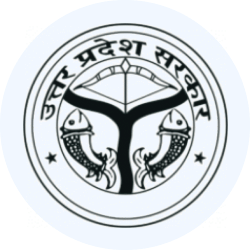UPPSC (UP) Exam > UPPSC (UP) Questions > What did the Hunter Commission appointed by ...
Start Learning for Free
What did the Hunter Commission appointed by the Viceroy to probe?
- a)Bardoli Satayagraha
- b)Khilafat Agitation
- c)Jallianwala Bagh tragedy
- d)Chauri Chaura incident
Correct answer is option 'C'. Can you explain this answer?
Most Upvoted Answer
What did the Hunter Commission appointed by the Viceroy to probe?a)Ba...
The Jallianwala Bagh massacre, also known as the Amritsar massacre, took place on 13 April 1919 when troops of the British Indian Army under the command of Colonel Reginald Dyer fired rifles into a crowd of Indians, who had gathered in Jallianwala Bagh, Amritsar, Punjab.
Free Test
FREE
| Start Free Test |
Community Answer
What did the Hunter Commission appointed by the Viceroy to probe?a)Ba...
bBackground:
The Hunter Commission was appointed by the Viceroy of India to probe the Jallianwala Bagh tragedy that took place on April 13, 1919, in Amritsar, Punjab.
b Jallianwala Bagh Tragedy:
- The Jallianwala Bagh massacre was a brutal incident where British troops under the command of General Reginald Dyer opened fire on a peaceful gathering of unarmed civilians who had assembled at Jallianwala Bagh to protest against the arrest of two national leaders.
- The troops fired indiscriminately at the crowd for about 10-15 minutes, resulting in the death of hundreds of people and injuring many more.
b Appointment of Hunter Commission:
- In the aftermath of the Jallianwala Bagh massacre, there was widespread outrage and condemnation of the British government's actions.
- To investigate the incident and assess the responsibility of those involved, the Viceroy appointed the Hunter Commission, led by British judge Sir William Hunter.
b Findings of the Commission:
- The Hunter Commission conducted a detailed inquiry into the Jallianwala Bagh tragedy and gathered evidence from various witnesses.
- The Commission's report criticized General Dyer for his actions and held him responsible for the excessive and indiscriminate use of force that led to the loss of innocent lives.
- The findings of the Commission further fueled public anger and added to the growing resentment against British rule in India.
b Impact:
- The Hunter Commission's report and its findings played a significant role in shaping the course of the Indian independence movement.
- The Jallianwala Bagh massacre became a symbol of British oppression and fueled the demand for self-rule in India.
- The incident and the subsequent investigations served to galvanize the Indian freedom struggle and strengthen the resolve of nationalists to fight for independence from colonial rule.
The Hunter Commission was appointed by the Viceroy of India to probe the Jallianwala Bagh tragedy that took place on April 13, 1919, in Amritsar, Punjab.
b Jallianwala Bagh Tragedy:
- The Jallianwala Bagh massacre was a brutal incident where British troops under the command of General Reginald Dyer opened fire on a peaceful gathering of unarmed civilians who had assembled at Jallianwala Bagh to protest against the arrest of two national leaders.
- The troops fired indiscriminately at the crowd for about 10-15 minutes, resulting in the death of hundreds of people and injuring many more.
b Appointment of Hunter Commission:
- In the aftermath of the Jallianwala Bagh massacre, there was widespread outrage and condemnation of the British government's actions.
- To investigate the incident and assess the responsibility of those involved, the Viceroy appointed the Hunter Commission, led by British judge Sir William Hunter.
b Findings of the Commission:
- The Hunter Commission conducted a detailed inquiry into the Jallianwala Bagh tragedy and gathered evidence from various witnesses.
- The Commission's report criticized General Dyer for his actions and held him responsible for the excessive and indiscriminate use of force that led to the loss of innocent lives.
- The findings of the Commission further fueled public anger and added to the growing resentment against British rule in India.
b Impact:
- The Hunter Commission's report and its findings played a significant role in shaping the course of the Indian independence movement.
- The Jallianwala Bagh massacre became a symbol of British oppression and fueled the demand for self-rule in India.
- The incident and the subsequent investigations served to galvanize the Indian freedom struggle and strengthen the resolve of nationalists to fight for independence from colonial rule.

|
Explore Courses for UPPSC (UP) exam
|

|
Similar UPPSC (UP) Doubts
What did the Hunter Commission appointed by the Viceroy to probe?a)Bardoli Satayagrahab)Khilafat Agitationc)Jallianwala Bagh tragedyd)Chauri Chaura incidentCorrect answer is option 'C'. Can you explain this answer?
Question Description
What did the Hunter Commission appointed by the Viceroy to probe?a)Bardoli Satayagrahab)Khilafat Agitationc)Jallianwala Bagh tragedyd)Chauri Chaura incidentCorrect answer is option 'C'. Can you explain this answer? for UPPSC (UP) 2025 is part of UPPSC (UP) preparation. The Question and answers have been prepared according to the UPPSC (UP) exam syllabus. Information about What did the Hunter Commission appointed by the Viceroy to probe?a)Bardoli Satayagrahab)Khilafat Agitationc)Jallianwala Bagh tragedyd)Chauri Chaura incidentCorrect answer is option 'C'. Can you explain this answer? covers all topics & solutions for UPPSC (UP) 2025 Exam. Find important definitions, questions, meanings, examples, exercises and tests below for What did the Hunter Commission appointed by the Viceroy to probe?a)Bardoli Satayagrahab)Khilafat Agitationc)Jallianwala Bagh tragedyd)Chauri Chaura incidentCorrect answer is option 'C'. Can you explain this answer?.
What did the Hunter Commission appointed by the Viceroy to probe?a)Bardoli Satayagrahab)Khilafat Agitationc)Jallianwala Bagh tragedyd)Chauri Chaura incidentCorrect answer is option 'C'. Can you explain this answer? for UPPSC (UP) 2025 is part of UPPSC (UP) preparation. The Question and answers have been prepared according to the UPPSC (UP) exam syllabus. Information about What did the Hunter Commission appointed by the Viceroy to probe?a)Bardoli Satayagrahab)Khilafat Agitationc)Jallianwala Bagh tragedyd)Chauri Chaura incidentCorrect answer is option 'C'. Can you explain this answer? covers all topics & solutions for UPPSC (UP) 2025 Exam. Find important definitions, questions, meanings, examples, exercises and tests below for What did the Hunter Commission appointed by the Viceroy to probe?a)Bardoli Satayagrahab)Khilafat Agitationc)Jallianwala Bagh tragedyd)Chauri Chaura incidentCorrect answer is option 'C'. Can you explain this answer?.
Solutions for What did the Hunter Commission appointed by the Viceroy to probe?a)Bardoli Satayagrahab)Khilafat Agitationc)Jallianwala Bagh tragedyd)Chauri Chaura incidentCorrect answer is option 'C'. Can you explain this answer? in English & in Hindi are available as part of our courses for UPPSC (UP).
Download more important topics, notes, lectures and mock test series for UPPSC (UP) Exam by signing up for free.
Here you can find the meaning of What did the Hunter Commission appointed by the Viceroy to probe?a)Bardoli Satayagrahab)Khilafat Agitationc)Jallianwala Bagh tragedyd)Chauri Chaura incidentCorrect answer is option 'C'. Can you explain this answer? defined & explained in the simplest way possible. Besides giving the explanation of
What did the Hunter Commission appointed by the Viceroy to probe?a)Bardoli Satayagrahab)Khilafat Agitationc)Jallianwala Bagh tragedyd)Chauri Chaura incidentCorrect answer is option 'C'. Can you explain this answer?, a detailed solution for What did the Hunter Commission appointed by the Viceroy to probe?a)Bardoli Satayagrahab)Khilafat Agitationc)Jallianwala Bagh tragedyd)Chauri Chaura incidentCorrect answer is option 'C'. Can you explain this answer? has been provided alongside types of What did the Hunter Commission appointed by the Viceroy to probe?a)Bardoli Satayagrahab)Khilafat Agitationc)Jallianwala Bagh tragedyd)Chauri Chaura incidentCorrect answer is option 'C'. Can you explain this answer? theory, EduRev gives you an
ample number of questions to practice What did the Hunter Commission appointed by the Viceroy to probe?a)Bardoli Satayagrahab)Khilafat Agitationc)Jallianwala Bagh tragedyd)Chauri Chaura incidentCorrect answer is option 'C'. Can you explain this answer? tests, examples and also practice UPPSC (UP) tests.

|
Explore Courses for UPPSC (UP) exam
|

|
Signup for Free!
Signup to see your scores go up within 7 days! Learn & Practice with 1000+ FREE Notes, Videos & Tests.


























